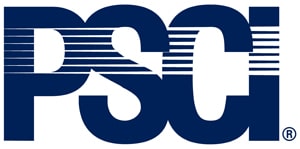Even before the pandemic struck, remote work was becoming increasingly common. Just last summer, we made a post talking about the benefits afforded to employers by offering remote work as a business perk. In today’s world, however, remote work is no longer just a perk, it’s more a necessity.
Despite the need, however, not all are cut out for working from home. To be successful, the remote worker must possess certain traits and skills in order to be effective. The good news, however, is that just about all of those traits can be learned, built upon, and strengthened.
In this blog post, we’ll address the different traits employers should be on the lookout for when hiring remote workers as well as the questions employers can ask to help them evaluate a candidate’s potential.
The Traits to Look for in a Remote Worker and How to Assess Them
The exact skills and characteristics that make for a good hire will vary dependent on position, especially for technical roles. These, however, are the skills and characteristics that the most successful remote workers possess:
Good Communication Skills
In a traditional office setting, having good communication skills is important; in a remote work setting, possessing good communication skills is critical. When working remotely, it’s not possible to stop by a coworker’s desk to ask them about a request they made or to ask them a question about a project being worked on. Instead, remote workers must relay these requests/questions using other communication channels. In doing so, their communication must be clear, concise, and responsive.
In order to assess a candidate’s communication skills, employers could set up a written test or ask questions, such as:
- Can you describe your most recent job responsibilities using only a few sentences?
- How have you overcome difficult work situations/projects in the past?
- Tell us about a situation when you failed to communicate properly.
Questions such as these will demonstrate to the employer the candidate’s ability to describe their qualifications in a clear and concise manner. They’ll also demonstrate how the candidate has used, or has learned to use, effective communication to solve past problems.
A Routine Driven Work Ethic
One of the more beneficial perks from working from home is no morning commute. That means a later wake-up call, less frustration (no traffic jams), and theoretically, more time that can be spent at one’s desk (for the more ambitious). No commute, however, shouldn’t excuse a lack of routine. According to career and leadership coaches, how one looks can directly affect how one feels. That’s why they all suggest keeping morning routines (e.g. morning workout, showers before work, dressing in work attire, etc.) to help stimulate one’s mind and mentally prepare for the workday.
From an employer’s perspective, a routine driven candidate holds importance because it can also indicate a good work ethic. Workers with a routine set aside certain times to accomplish certain tasks. The routines keep them on schedule and focused on the task at hand. In fact, it wouldn’t be a stretch to say that those who are routine driven tend to be more reliable.
So, to assess a candidate’s routine and work ethic, employers can ask the following questions:
- Describe your morning routine.
- How do you react when faced with many hurdles while trying to achieve a goal? How do you overcome those hurdles?
- When things are slow at work or you’ve finished your tasks, what do you do?
- Tell me about a time your workday ended before you were able to finish your task.
Excellent Organization Skills
They say that a cluttered desk is a sign of a cluttered mind. Of course, Albert Einstein also famously quipped back with, “What, then, is an empty desk a sign?” Regardless of how a remote employee’s desk appears, what’s important is that they know where everything is and how to locate it when needed.
Remote employees, then, need to be highly organized as they will be working unsupervised and largely according to their own schedules. This requires a good ability to prioritize and manage their time in order to meet deadlines.
To assess a candidate’s organizational skills, employers can ask:
- How do you prioritize the tasks to be completed in a work project?
- When it is your responsibility to organize and plan a project, what steps do you take?
- How would you manage a coworker who asks so many questions that you can’t get your own work done?
Flexibility
Let’s face it, it can be easier to get work done while in a more traditional setting, such as an office. That’s because when people work from home, they’re rarely alone. They have spouses to deal with, children to take care of, and pets to take out for walks. That’s why two of the aforementioned traits, a good work routine and excellent organizational skills, are so important. They allow for the worker to seamlessly handle unforeseen tasks without throwing off their whole day.
It’s a two-way street, though. Employers should allow remote staff as much autonomy and flexibility as possible, but at the same time provide some structure. Whether that’s in the form of daily check-in calls or weekly one-on-ones, these interactions can help foster inclusivity and create accountability.
To get a sense of a candidate’s adaptability, ask questions like:
- You’ve been working all week on a project when your manager suddenly informs you that the project’s requirements have changed. How do you react?
- Your teammates work in different time zones, leading to meetings at odd times of the day, how do you deal with that?
- How do you adjust to changes you have no control over?
Technically Savvy
As an IT staffing firm, just about every client and job candidate we deal with has a high-level technical background. In other words, they’re tech savvy.
For those reading this post who don’t work within the IT industry and are looking to hire remote workers, however, you’ll need to assure the candidates you’re interviewing know their way around a computer. That’s because they’ll be interacting with their coworkers, managers, clients, and customers by utilizing different systems and programs. If the employee you hired has to continuously reach out to tech support because of connectivity issues due to a disconnected ethernet cable, you’ve most likely made a poor choice for a remote hire.
So, in lieu of questions, test your candidate’s technical capabilities. During the interview process have them communicate with you via communication platforms, such as Slack. Ask them to arrange a meeting with your interview panel over Zoom, and even have them present their work to you by accessing a shared Google Document. Doing these things will prove that they have the technical aptitude to handle a remote work environment.
Like it or not, the future of work will most definitely involve remote workforces. If, however, you follow the advice we’ve outlined above, you can be assured that your teams will be made up of the right quality of worker.









